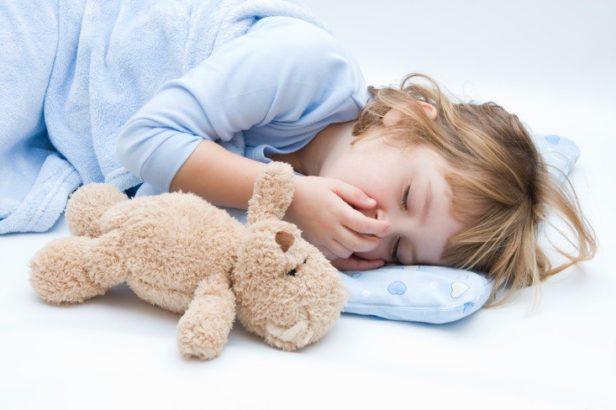
What is a lingering cough
A lingering cough - cough that persists for two to three weeks. Attacks can be of different intensity - from a slight cough to a strong cough.
The cough may be dry, moist, resembling respiratory cramps, or mild in which the baby will cough regularly. Attacks can occur at a certain time (in the morning, at night, during the day) or occur suddenly.
Protracted cough in a child requires compulsory treatment, because it can be the cause of any disease of the respiratory system. In most cases, a cough can occur due to allergies or an infection.
In some cases, an attack is a specific reaction of the child's body to the negative effects of the environment:
- dust and gas content of the air in the area of residence;
- if the baby constantly inhales cigarette smoke (passive smoking);
- an uncomfortable microclimate in which the child is constantly present (very dry or humid indoor air, unsanitary conditions, constant accumulation of dust, fungal spores on the mucous membranes will provoke frequent coughing).
All these factors often provoke hyperactivity of the mucous membranes of the respiratory tract and over-irritation of the cough receptors, therefore, first, the baby has a lingering, and then a chronic cough. In this case, the pathology of the respiratory system cannot be detected, but the child does not stop coughing.
What other factors can provoke a lingering cough in a child?
What diseases can a lingering cough occur?
In most cases, a lingering cough in children is a consequence of improper or inadequate treatment of acute respiratory infections. In this case, there is a risk of developing bronchitis, pharyngitis, chronic laryngitis and tonsillitis. But besides this, there are a number of diseases or pathological conditions that can cause a lingering cough:
Cough form of bronchial asthma.
Gastroesophageal reflux. An examination by a gastroenterologist is required.
Tuberculosis. A lingering cough with phlegm in a child happens both with the release of mucus and without it.
Prolonged bronchitis or pneumonia, pleurisy - first, there is a dry cough without painful sensations, and then a wet cough.
Fungal infections.
Pertussis.
Diagnostics of the lingering cough
With a prolonged cough, only a doctor can determine how to treat a lingering cough in a child. He will take into account many factors: age, the nature of the seizures, concomitant symptoms, individual reactions to medications, allergic manifestations, and more.
The doctor will prescribe treatment only after clarifying the diagnosis.
For further examination, the following is assigned:
Cough therapy is aimed at treating the underlying disease:
Treatment of cough in children should always be started with:
- creation of comfortable conditions in the room (humidification of dry air, excluding stress, sources of allergies);
- warm plentiful drink;
- food should be gentle, warm, so as not to irritate the inflamed nasopharynx and reduce the load on the digestive system;
- with additional vitamins in drinking and food - warm diluted freshly prepared juices, cranberry juice, raspberries or black currants, honey and lemon;
The most important factor in the treatment of cough in a child is the correct choice of a set of drugs and an antitussive agent.
Often, inappropriate treatment for cough therapy causes:
To prescribe the correct treatment, it is important to clarify the localization of the inflammatory process and a preliminary diagnosis, which makes it possible to determine what kind of cough the child has: to treat it at home or it is necessary to hospitalize the baby in a hospital for intensive care.
Leave a Comment